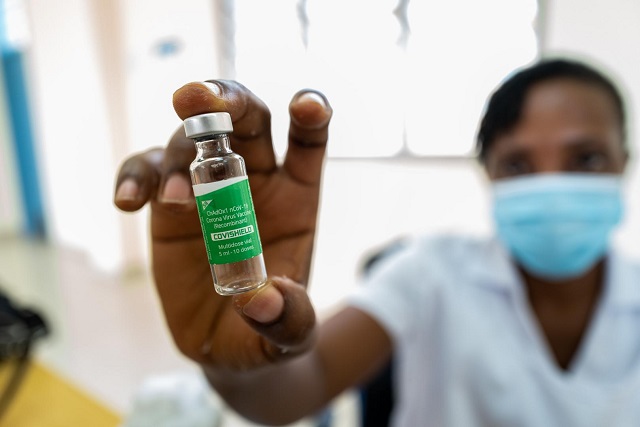
Kampala, Uganda | THE INDEPENDENT | Vaccine experts are encouraging Ugandans to report adverse reactions early as the government launches the third COVID-19 vaccination campaign.
According to the vaccinologists, many of the reactions experienced by people after vaccination are being reported by family members late thus hindering proper investigations.
They say as a result, the safety data of reported reactions is not accurate.
The call was made during a town hall meeting that was organised by the Ministry of Health.
Dr Annet Kisakye, an immunization officer with the World Health Organisation says while all the vaccines that are being used are safe, she urges the public to endeavor to report any reactions early. According to Kisakye, many people wait for the situation to worsen before they seek medical help.
Uganda is using seven World Health Organisation-approved vaccines to carry out vaccination. Some of the adverse reactions associated with the vaccines include blood clots and myocarditis(inflammation of the heart), especially among children.
Prof Pontiano Kaleebu, the executive director of the Uganda Virus Research Institute says that it’s important for people to report the effects of vaccination.
He says the lack of reporting makes it impossible for health professionals maintenance of the vaccines.
The call from the experts comes days after a 14-year-old is believed to have developed multiple organ adverse reactions after being vaccinated from school.
To date, over 21 million COVID-19 vaccines have been used in different vaccination campaigns. According to the National Drug Authority, hundreds of complaints have been received in regards to COVID-19 vaccination. The authority’s spokesperson, Abaiz Rwamwiri says only two adverse reactions have been registered since vaccination began in March 2021.
He said: “Investigations from the two complaints have revealed that the situation of the two cases was caused by other factors . In the case of the Busitema student, it was discovered that she had cerebral malaria while in the most recent case investigations have shown that it was caused by allergies. The student had allergies that were not declared at the time of vaccination.”
*****
URN
 The Independent Uganda: You get the Truth we Pay the Price
The Independent Uganda: You get the Truth we Pay the Price


